Resources persons along with NDPP Wokha region members. (Morung Photo)
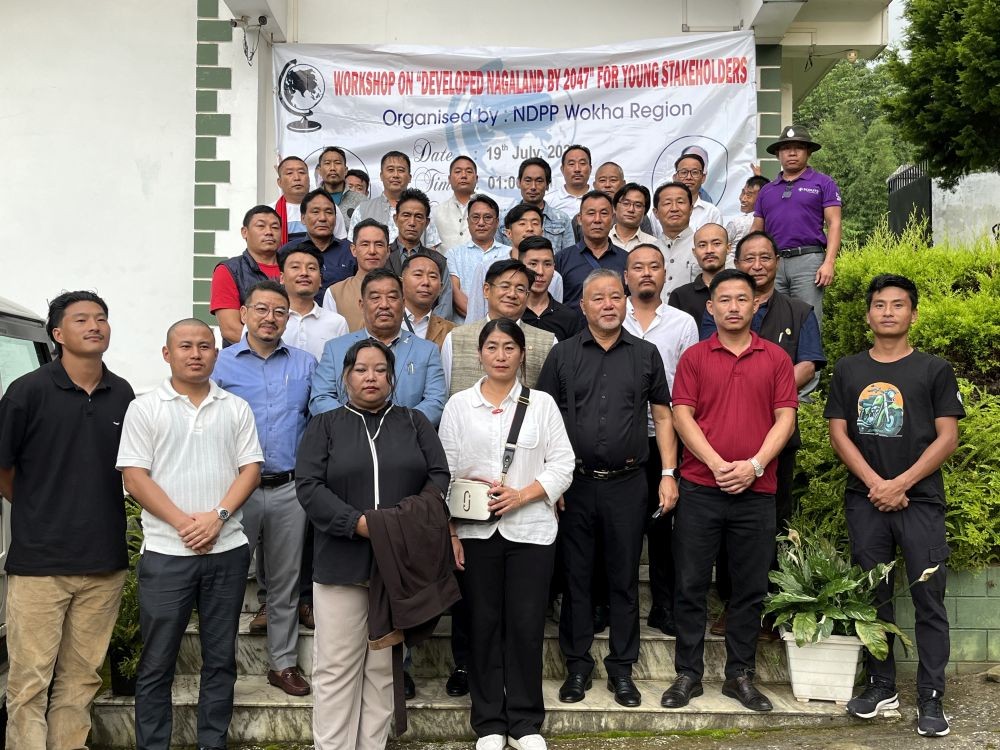
Morung Express News
Wokha | July 19
NDPP Wokha Region organised a workshop titled “Developed Nagaland by 2047” at Hammock Resort, New Wokha Village on July 10. The resource persons for the event were Advisor Agriculture, Mhathung Yanthan, MLA Y Mhonbemo Humtsoe and CEO Pinacle Skills, Nagaland Dr Yan Murry. Advisor to the Chief Minister of Nagaland and Senior Vice President of NDPP, Dr Chumben Murry chaired the programme.
Referring to Viksit Bharat by 2047 as a national dream, the MLA said, Can India do it? Yes! The big question is—if India can, can Nagaland dream too? He stressed that Nagaland must not be left behind and called on the youth and communities to work hard. “We must work diligently and aim for double-digit growth,” he asserted.
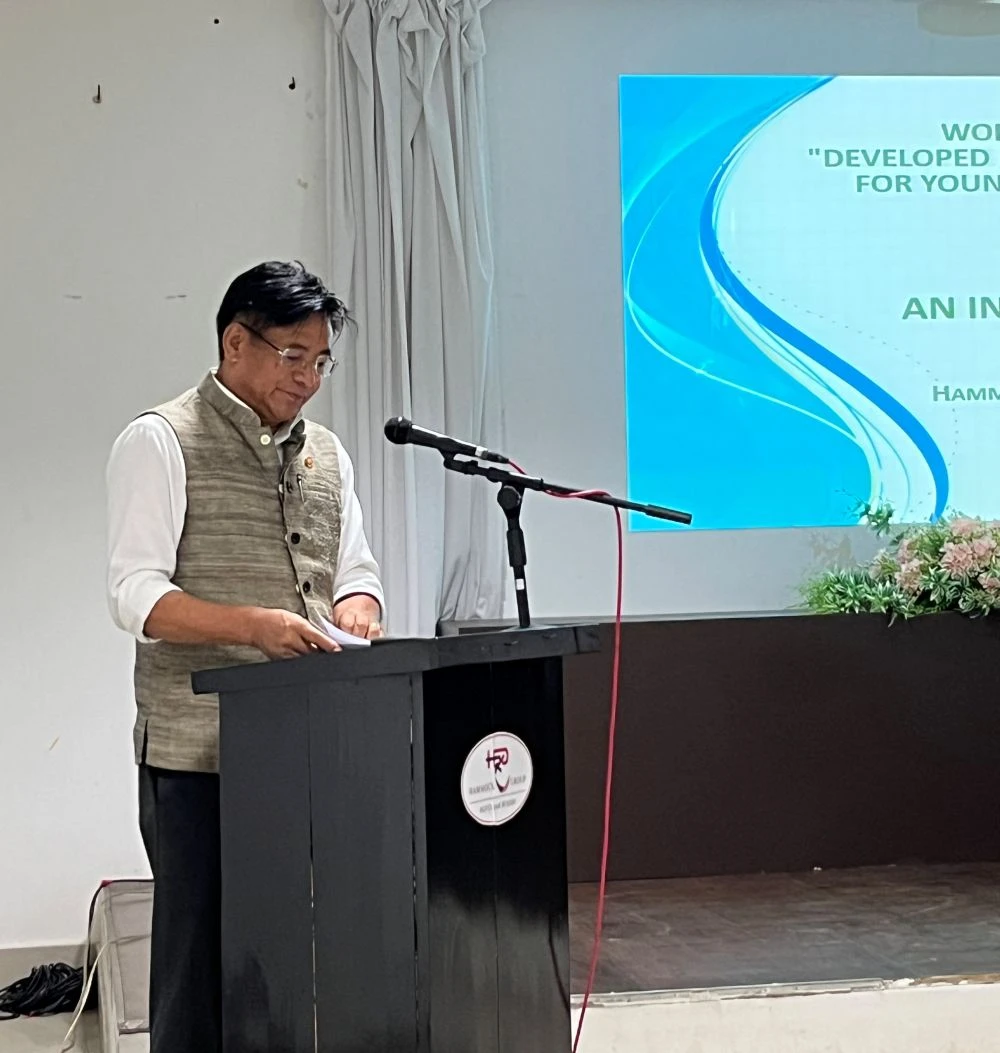
Turning his attention to Nagaland’s current status, he acknowledged the state’s slower per capita growth and the ongoing structural shift toward the tertiary sector. However, he noted that Nagaland has vast potential to diversify, especially in areas like tourism, agro-industry and skill-based services. “Our plus point is our vibrant youth,” he said. “As a forward tribe, we must initiate, innovate, and be proactive.”
Dr Chumben also outlined key areas for youth engagement and economic growth, offering “food for thought” on Technology-aided farming led by educated youth, Industrialisation and entrepreneurship, Mobilising skilled workers who are currently homebound and exploring tourism potential with a long-term vision. He strongly emphasised that youth must take the lead.
A Pathway to Effective Policies
Addressing on the topic, “A Pathway to Effective Policies and Public Receptiveness for a Developed Nagaland”, MLA Mhathung Yanthan, called upon every section of society to actively contribute towards development, stressing that without a clear vision, defined strategy, and actionable plan, progress would continue to be out of reach. “We must know where we are going and how we plan to get there. Without clarity, we cannot move forward,” he said.
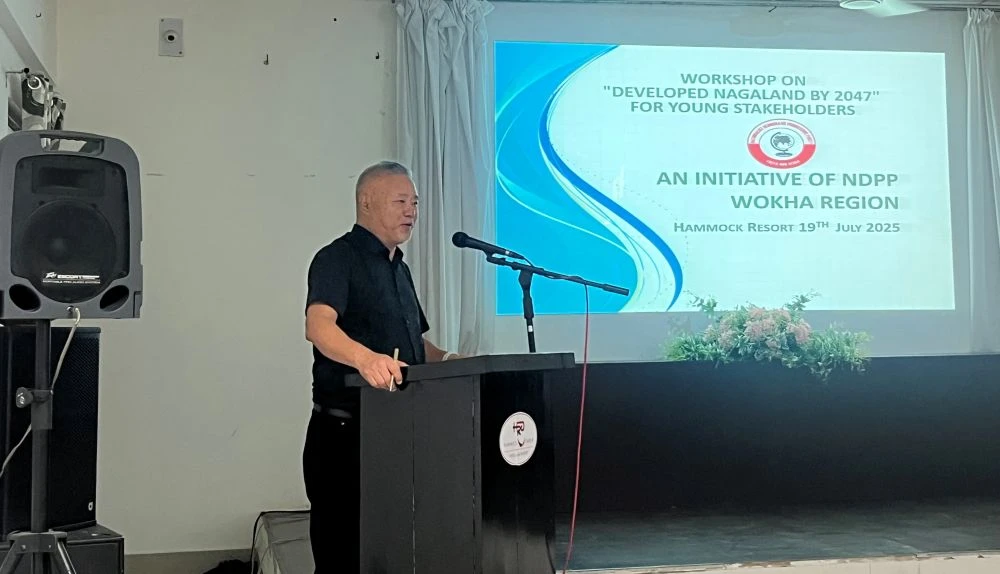
On the matter of policy-making, Yanthan emphasised the need for policies that are inclusive, flexible, and rooted in evidence and context. He stated that effective policies should not only reflect the unique challenges and needs of Nagaland but must also engage stakeholders at all levels—from the grassroots to the government.
“Policies must evolve with time and carry a strong sense of ownership. They must be responsive to changing climates, technological advances, and demographic shifts,” he noted.
“The public must not only receive benefits but also participate in shaping the policies that affect their lives,” he added.
Yanthan further called for greater respect and support for policymakers, emphasising that real transformation requires collective effort and mutual trust between the government and the people.
Highlighting the need to revitalise Nagaland’s agriculture sector, he advocated for a shift from subsistence farming to market-oriented practices, urging youth to view agriculture as a means to economic growth rather than merely a way of life.
He encouraged the younger generation to explore employment opportunities outside the state and challenged parents to support their children’s career ambitions, even in unconventional paths.
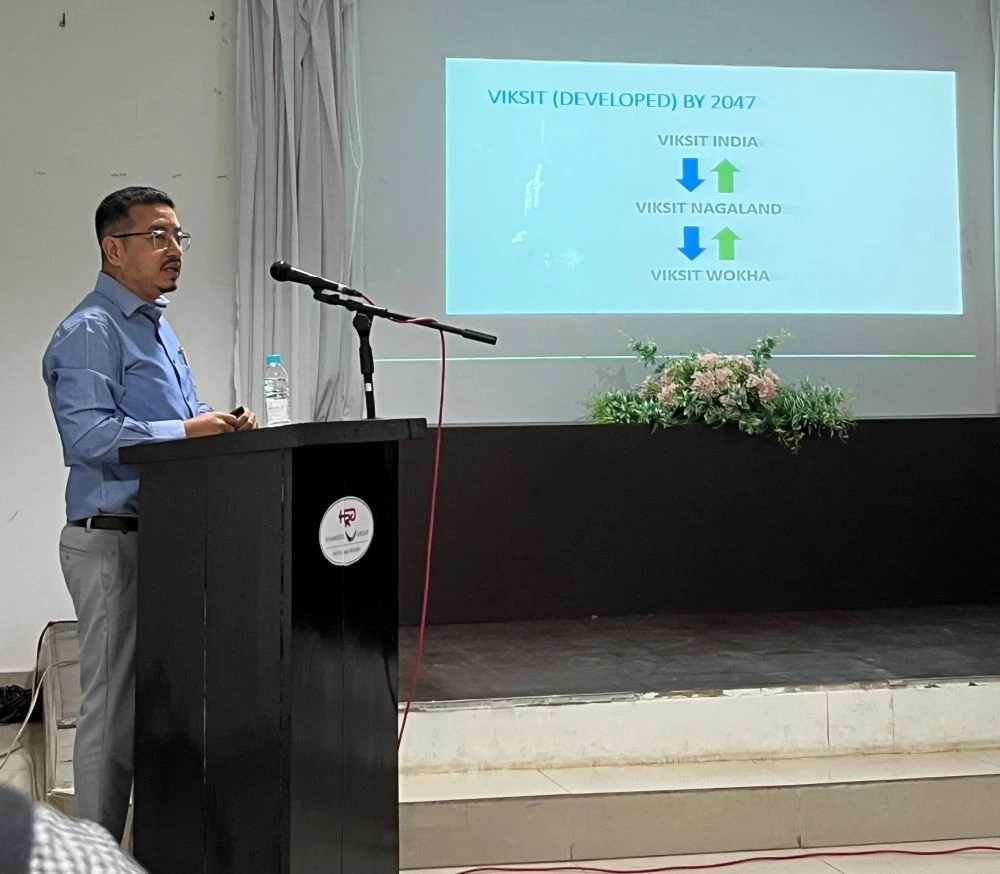
Skill Development and Entrepreneurship
Delivering a focused address on “Skill Development and Entrepreneurship Toward a Developed Nagaland by 2047”, Dr Yan Murry highlighted the urgent need to prepare for the evolving job landscape and align skill development efforts with emerging global trends.
Dr Yan stressed that skill development must not be based on the present alone, but also the future. “We need to think ahead—what kind of jobs will exist in the next 10 to 15 years? What skills will we need to stay relevant?” he said.
Citing a World Economic Forum study, he explained the rapid pace of automation and AI adoption: currently, 22% of work is done by machines, while 47% is done by humans. By 2030, machines, AI, and other technologies are expected to take over 34% of work, leaving humans with just 33%. “What happens by 2047? How much work will be left for us? Are we ready for that change?” he asked.
He stressed that many jobs will be taken over by AI, and only those who are technologically skilled will have better job prospects. “We must master AI, not fear it,” he said.
Dr Yan also urged youth to consider degrees in early childhood education and vocational trades, which he noted will offer stable job opportunities in the coming decades. He highlighted renewable energy as another high-growth sector, especially with the rise of electric vehicles. In this context, he suggested that institutions like ITI Wokha introduce EV technician courses to equip local youth for future demands.
On local economic challenges, Dr Yan pointed out that Nagaland ranks at the bottom in ease of marketing. He urged local leaders to take stock of how many financial literacy programmes have been conducted in Wokha and to motivate youth to actively participate in such training.
“Skill is the currency of tomorrow,” he said in conclusion, calling for a forward-thinking, technology-driven approach to preparing Nagaland’s youth for 2047 and beyond.
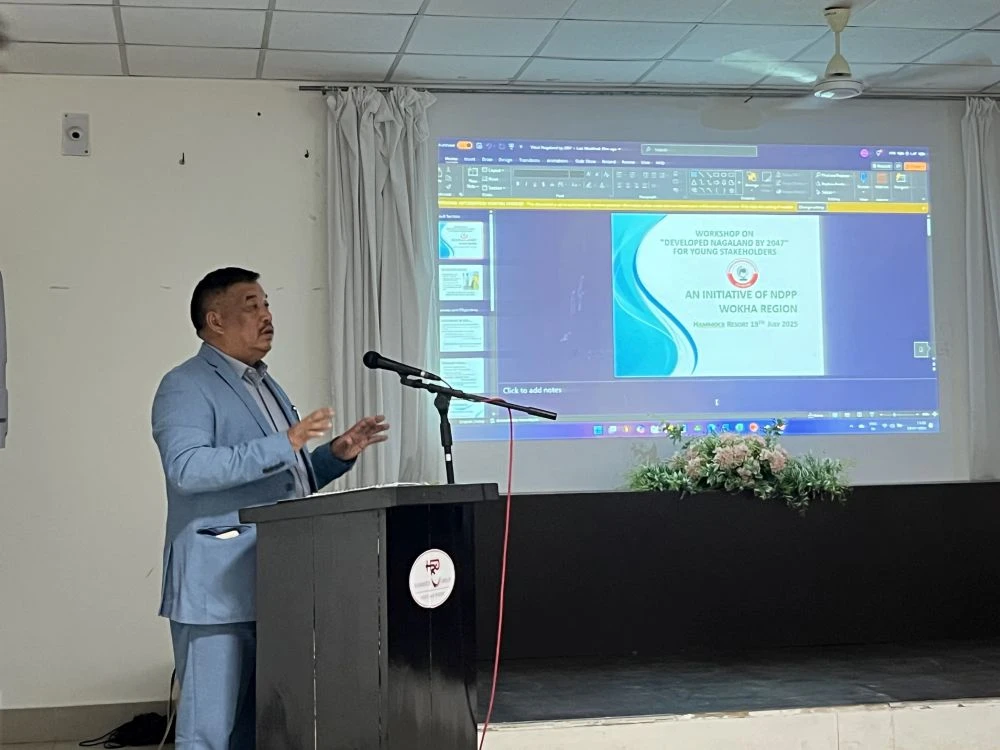
Good governance
Speaking on the topic “Good governance and achievements of the Govt towards developed Nagaland by 2046”, MLA Y Mhonbemo Humtsoe made a strong appeal for clean politics, inclusive governance, and a collective mindset shift among the people of Nagaland. He underscored the need to move beyond narrow tribal loyalties and corruption. “If we want development, we must rise above tribalism and work together. No community can prosper in isolation,” he said, urging unity in purpose and vision.
He called on the youth to engage actively in politics, not just as observers but as contributors to change. “We often say youth are the future, but I believe youth are the present. The system needs your energy, your ideas, and your integrity,” he said.
Humtsoe also stressed the importance of embracing digital governance and building trust between citizens and public institutions. He said development should not be left solely to the government and called for the active involvement of civil society, churches, and student bodies.
Encouraging a shift in mindset, he noted that many still look only to government jobs as a means of survival. “We need to rethink our approach. Entrepreneurship, skill development, and self-reliance must be part of our developmental journey,” he added.
Highlighting that political will alone cannot bring about change, Humtsoe emphasised, “Governance is not just what the government does; it’s also what the people demand and contribute.”
The workshop concluded with interactive sessions.






